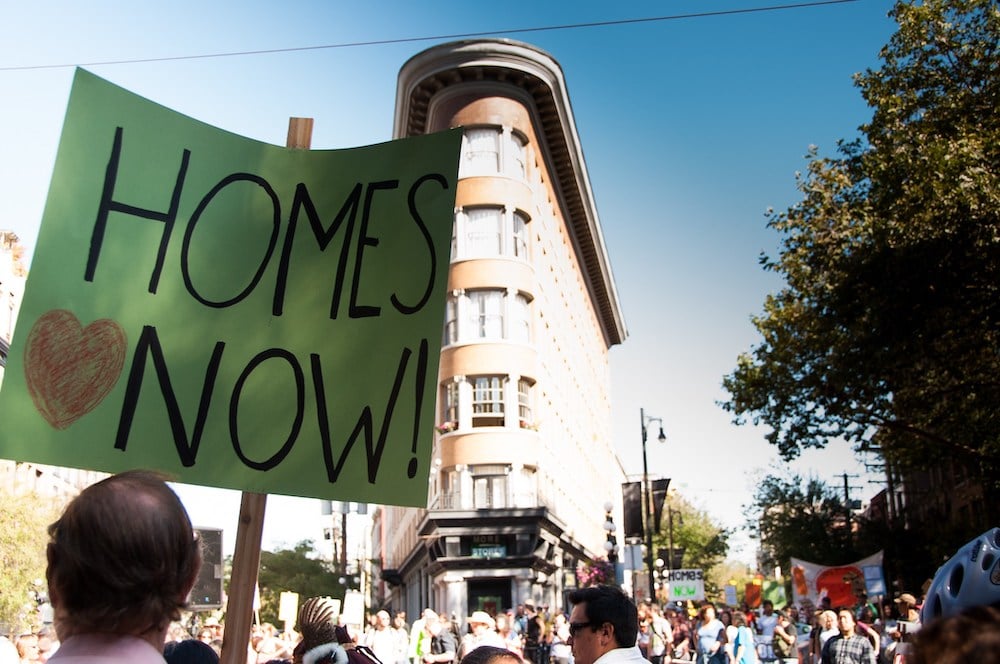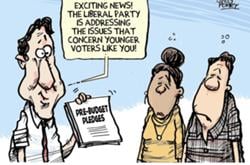Just about everyone wants more rental housing. It is, after all, usually a cheaper alternative to home ownership in this region of high-cost housing. Which is why Vancouver’s mayor and council are experimenting with various ways to get the market to build more rental units.
Psssst. I have a secret to share. Three years ago, the B.C. government created a powerful mechanism to spur the building of lots and lots of rental developments all over the province.
B.C. cities for the first time can zone land not just by use but by tenure type. This means cities can now restrict certain parcels for rental tenure only, prohibiting their use for condominium development.
In 2018, the NDP legislature went to some trouble to make this happen by amending the B.C. Local Government Act and the Vancouver Charter.
And the driving rationale for the change was compelling. Absent such restrictions, condo developers can swoop in and outcompete rental developers for choice parcels. Or even demolish existing affordable rental buildings for condo development. The results are a loss of existing rental units and an absence of new rental units where they are most needed (around transit stops, for instance).
But even though Vancouver was given this rental-boosting tool by the province, it has yet to put it to use. Why?
Indeed, why have so few city councils granted this authority put it to work?
To date, only New Westminster has established a very limited rental only zone and in that case mostly to protect a few existing rental buildings from being knocked down.
Particularly confounding is the lack of action by the city of Vancouver where 58 per cent of the region's rental stock exists (and whose members of the legislative assembly pushed for this change).
Digging into this issue a bit reveals the probable reason. It seems that rental-only zoning would have an appreciable effect on land values in areas so zoned.
For example, Vancouver council is now considering changing a bylaw to modestly expand the areas where it requires any redeveloped rental property to replace any lost rental units with new ones, such that there is no net loss in total numbers. (Sadly, rent levels are not protected in the process). It’s looking at applying that requirement to parcels along the city's major arterial streets where rental units now predominate. In a report to council, staff cautioned that a demand to replace rental units lost to condo development on a one-to-one basis might lower land values by between 10 and 30 per cent.
The Urban Development Institute real estate lobby immediately expressed alarm and local media disseminated these concerns broadly. Such concerns troubled some members of council. The fate of this more modest initiative has yet to be determined. (It comes back to council this spring).
This unsettled history strikes me as odd. The objection seems to be that land owners might see the value of their parcels reduced by 10 to 30 per cent. But the value of all lands in the city of Vancouver (and similarly, in the rest of the region) has shot up by more than 200 per cent in just the three years between 2014 and 2017!
My heart cannot bleed for land owners unhappy at marginal decreases in already hyper-inflated land values.
And isn't defeating the spiraling rise in land values that drives housing unaffordability the entire point?
The provincial legislation was passed with the intent of adjusting the land market such that rental projects would not get outcompeted for parcels by condominium developers. For that to work at all requires that land price inflation be at least slowed to give new rentals a fighting chance in the market, and to reduce the pressure on owners of existing rentals to sell out.
I would suggest that Vancouver’s mayor and city council dust off and take a close look at the rental zoning powers bestowed upon them by the province three years ago.
Let’s extend our ambitions beyond attempts like the Moderate Income Rental Housing Pilot Program that throws at developers taxpayer subsidies and density incentives in return for oversized rental buildings with only one out of five affordable units therein.
Amidst an unrelenting housing crisis, Vancouver’s elected leaders so far refuse to use available legal tools to slow out of control land price inflation. They are hampering the creation of new market rentals and the preservation of existing market rentals.
The status quo in Vancouver remains a land market that advantages land speculators. It is a land market that guarantees those speculators unfettered inflationary gains, on the one hand, and steep taxpayer subsidies in return for a relative few affordable rentals, on the other.
Zone for rentals only now. ![]()
Read more: Housing, Municipal Politics

















Tyee Commenting Guidelines
Comments that violate guidelines risk being deleted, and violations may result in a temporary or permanent user ban. Maintain the spirit of good conversation to stay in the discussion.
*Please note The Tyee is not a forum for spreading misinformation about COVID-19, denying its existence or minimizing its risk to public health.
Do:
Do not: